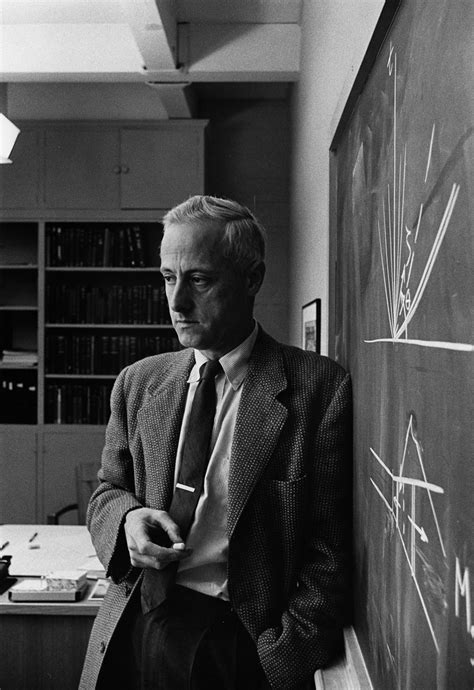A Quote by Herbert Spencer
The primary use of knowledge is for such guidance of conduct under all circumstances as shall make living complete. All other uses of knowledge are secondary.
Related Quotes
I feel that all knowledge should be in the free-trade zone. Your knowledge, my knowledge, everybody's knowledge should be made use of. I think people who refuse to use other people's knowledge are making a big mistake. Those who refuse to share their knowledge with other people are making a great mistake, because we need it all. I don't have any problem about ideas I got from other people. If I find them useful, I'll just ease them right in and make them my own.
To oppose knowledge is ignorant, and he who detests knowledge and science is not a man, but rather an animal without intelligence. For knowledge is light, life, felicity, perfection, beauty and the means of approaching the Threshold of Unity. It is the honor and glory of the world of humanity, and the greatest bounty of God. Knowledge is identical with guidance, and ignorance is real error
In mysticism, knowledge cannot be separated from a certain way of life which becomes its living manifestation. To acquire mystical knowledge means to undergo a transformation; one could even say that the knowledge is the transformation. Scientific knowledge, on the other hand, can often stay abstract and theoretical. Thus most of today’s physicists do not seem to realize the philosophical, cultural and spiritual implications of their theories.
When one tries to increase his knowledge by doing mental gymnastics over books without waiting upon God and looking to the guidance of the Holy Spirit, his soul is plainly in full swing. This will deplete his spiritual life. Because the fall of man was occasioned by seeking knowledge, God uses the foolishness of the cross to "destroy the wisdom of the wise.
I think we owe it to children to let them dig their knowledge, of whatever subject, for themselves out of the "fit" book; and this for two reasons: What a child digs for is his own possession; what is poured into his ear, like the idle song of a pleasant singer, floats out as lightly as it came in, and is rarely assimilated. I do not mean to say that the lecture and the oral lesson are without their uses; but these uses are, to give impulse and to order knowledge; and not to convey knowledge.
Glory is for none but the learned,
Guided are they - and proofs for seekers of guidance.
Every person is measured based on how much of it (knowledge) he mastered,
The ignorant are to the learned their enemies,
Succeed with knowledge and live energetically forever,
Men are all dead, only the possessors of knowledge are truly alive
Surely knowledge of the natural world, knowledge of the human condition, knowledge of the nature and dynamics of society, knowledge of the past so that one may use it in experiencing the present and aspiring to the future--all of these, it would seem reasonable to suppose, are essential to an educated man. To these must be added another--knowledge of the products of our artistic heritage that mark the history of our esthetic wonder and delight.
It follows that the word probability, in its mathematical acceptance, has reference to the state of our knowledge of the circumstances under which an event may happen or fail. With the degree of information we possess concerning the circumstances of an event, the reason we have to think that it will occur, or, to use a single term, our expectation of it will vary. Probability is the expectation founded upon partial knowledge.
Each is liable to panic, which is exactly, the terror of ignorance surrendered to the imagination. Knowledge is the encourager, knowledge that takes fear out of the heart, knowledge and use, which is knowledge in practice. They can conquer who believe they can. It is he who has done the deed once who does not shrink from attempting again.
Jesus didn't come to earth to establish a new religion. He came to restore a broken relationship. He came to make the primary, primary again. The secondary activity of obedience to the law of God was always intended to serve the primary activity: to love God and enjoy Him forever. When that is primary, the secondary becomes a labor of love, a joyful, and "easy" burden to bear. (Matthew 11:28-30








































